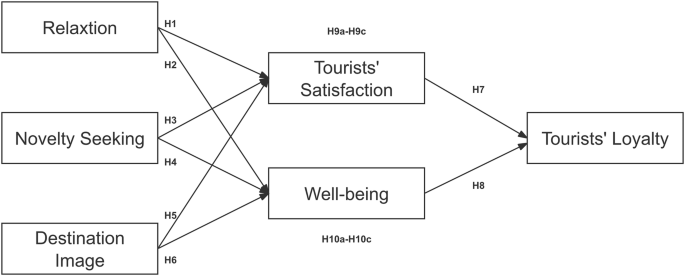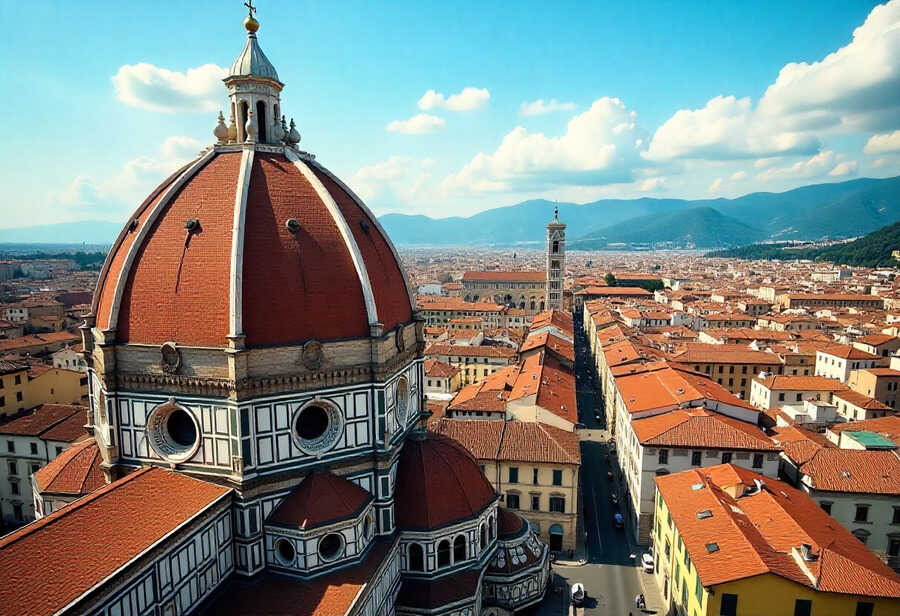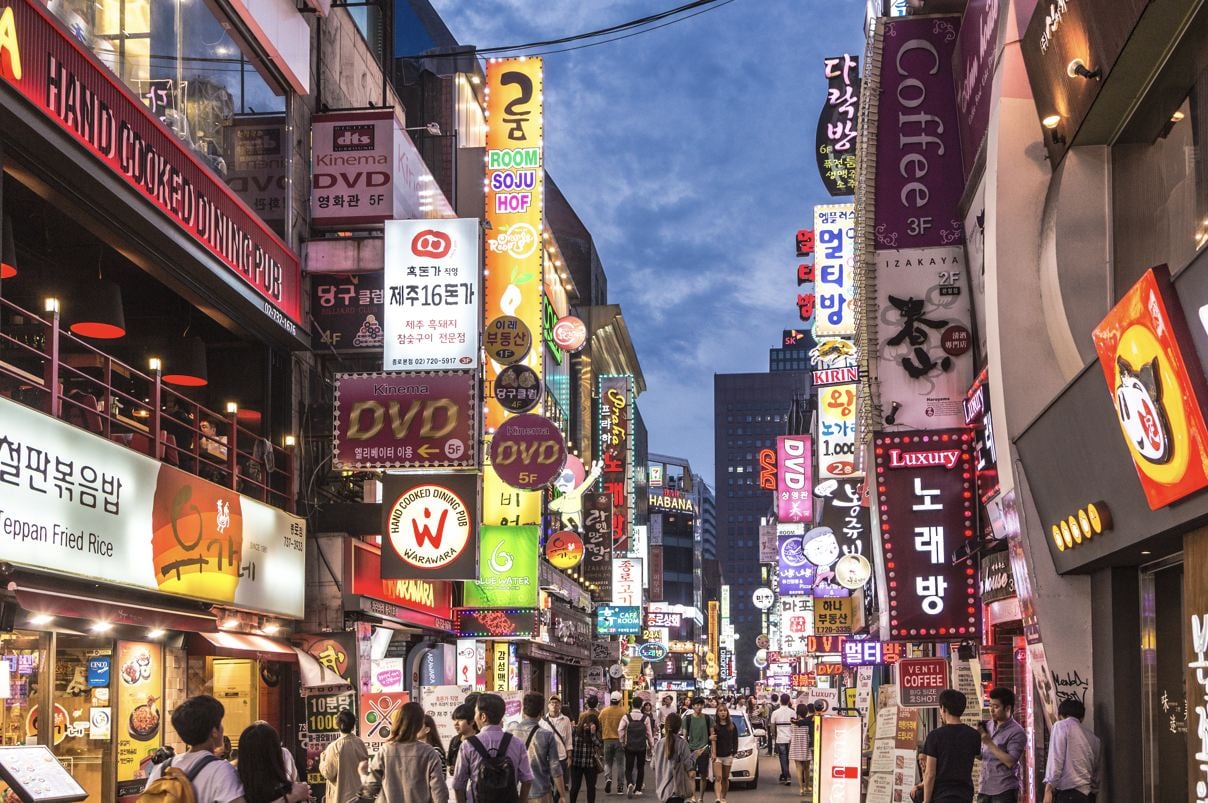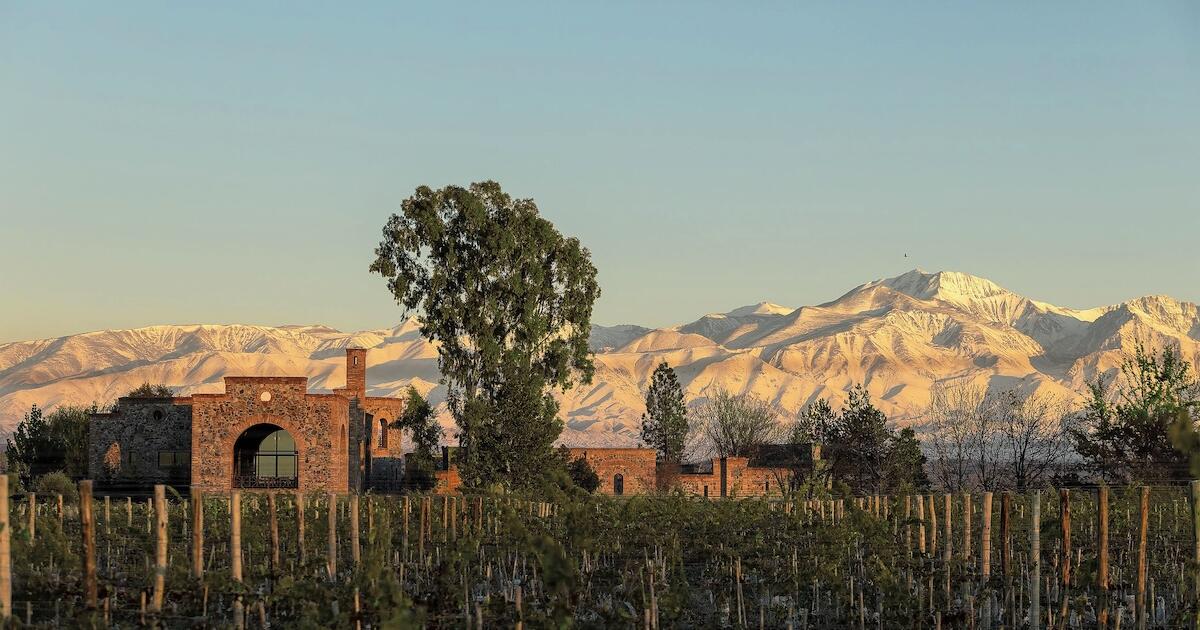Influencing factors of tourist loyalty in China camping destinations based on Expectation Confirmation Theory: the mediating role of satisfaction and well-being

Afshardoost M, Eshaghi MS (2020) Destination image and tourist behavioural intentions: a meta-analysis. Tour Manag 81:104154
Ahmed W, Omar M (2019) Drivers of supply chain transparency and its effects on performance measures in the automotive industry: case of a developing country. Int J Serv Oper Manag 33(2):159–186
Google Scholar
Albaity M, Melhem SB (2017) Novelty seeking, image, and loyalty—the mediating role of satisfaction and moderating role of length of stay: international tourists’ perspective. Tour Manag Perspect 23:30–37
Alcañiz EB, García IS, Blas SS (2009) The functional-psychological continuum in the cognitive image of a destination: a confirmatory analysis. Tour Manag 30(5):715–723
Almeida AMM, Correia A, Pimpão A (2014) Segmentation by benefits sought: the case of rural tourism in Madeira. Curr Issues Tour 17(9):813–831
Almeida-Santana, A., & Moreno-Gil, S. (2018). Understanding tourism loyalty: Horizontal vs. destination loyalty. Tourism Management, 65:245–255. https://doi.org/10.1016/j.tourman.2017.10.011
Al‐Msallam S (2020) The impact of tourists’ emotions on satisfaction and destination loyalty–an integrative moderated mediation model: tourists’ experience in Switzerland. J Hospitality Tour Insights 3(5):509–528
Al-okaily NS, Alzboun N, Alrawadieh Z, Slehat M (2023) The impact of eudaimonic well-being on experience and loyalty: a tourism context. J Serv Mark 37(2):216–231
Antón C, Camarero C, Laguna-García M (2017) Towards a new approach of destination loyalty drivers: satisfaction, visit intensity and tourist motivations. Curr Issues Tour 20(3):238–260
Artigas EM, Chasco C, Pozo VV (2015) Benefit perceived by tourists. Role of the hospitality offered by the tourist destination. Int J Bus Soc Sci 6(2):53–64
Ashton AS (2018) Spiritual retreat tourism development in the Asia Pacific region: investigating the impact of tourist satisfaction and intention to revisit: a Chiang Mai, Thailand case study. Asia Pac J Tour Res 23(11):1098–1114
Assaker G, Hallak R (2013) Moderating effects of tourists’ novelty-seeking tendencies on destination image, visitor satisfaction, and short-and long-term revisit intentions. J Travel Res 52(5):600–613
Ateca-Amestoy V, Aguilar AC, Moro-Egido AI (2014) Social interactions and life satisfaction: evidence from Latin America. J happiness Stud 15:527–554
Avecillas-Torres I, Herrera-Puente S, Galarza-Cordero M, Coello-Nieto F, Farfán-Pacheco K, Alvarado-Vanegas B, Ordóñez-Ordóñez S, Espinoza-Figueroa F (2025) Nature tourism and mental well-being: insights from a controlled context on reducing depression, anxiety, and stress. Sustainability 17(2):654
Bagheri F, Guerreiro M, Pinto P, Ghaderi Z (2024) From tourist experience to satisfaction and loyalty: Exploring the role of a sense of well-being. J Travel Res 63(8):1989–2004
Bagozzi RP (1992) The self-regulation of attitudes, intentions, and behavior. Soc Psychol Q 55:178–204
Baker M, Carr N, Stewart EJ (2021) Leisure activities in the outdoors: Learning, developing and challenging. CABI
Balabel A, Alzaed A (2020) A proposed design of eco-tourism camps for sustainable development in Taif, Saudi Arabia. In 2020 Industrial & Systems Engineering Conference (ISEC), IEEE, Makkah, Saudi Arabia pp 1–5
Ballantyne M, Pickering CM (2015) The impacts of trail infrastructure on vegetation and soils: cur rent literature and future directions. J Environ Manag 164:53–64
Beijing Business Daily (2023) Back to “rationality”: Capital exits, is the camping market cooling down? Beijing Business Daily. http://www.bbtnews.com.cn/2023/0324/485308.shtml
Berto R (2014) The role of nature in coping with psycho-physiological stress: a literature review on restorativeness. Behav Sci 4(4):394–409
Google Scholar
Bhattacherjee A (2001) Understanding information systems continuance: an expectation-confirmation model. MIS Q, 351–370
Bigné JE, Andreu L, Gnoth J (2005) The theme park experience: An analysis of pleasure, arousal and satisfaction. Tourism Management, 26(6):833–844. https://doi.org/10.1016/j.tourman.2004.05.006
Boulding W, Kalra A, Staelin R, Zeithaml VA (1993) A dynamic process model of service quality: from expectations to behavioral intentions. J Mark Res 30(1):7–27
Brooker E, Joppe M (2014) A critical review of camping research and direction for future studies. J Vacat Mark 20(4):335–351
Castro CB, Martín Armario E, Martín Ruiz D (2007) The influence of market heterogeneity on the relationship between a destination’s image and tourists’ future behaviour. Tourism Management, 28(1):175–187. https://doi.org/10.1016/j.tourman.2005.11.013
Cepeda-Carrion G, Cegarra-Navarro J-G, Cillo V (2019) Tips to use partial least squares structural equation modelling (PLS-SEM) in knowledge management. J Knowl Manag 23(1):67–89
Chen C-C, Yoon S (2019) Tourism as a pathway to the good life: comparing the top–down and bottom–up effects. J Travel Res 58(5):866–876
Chen C-C, Petrick JF, Shahvali M (2016b) Tourism experiences as a stress reliever: examining the effects of tourism recovery experiences on life satisfaction. J Travel Res 55(2):150–160
Chen C-C, Petrick J, Shahvali M (2016a) Tourism experiences as a stress reliever. J Travel Res 55:150–160.
Chen C-C, Huang W-J, Petrick JF (2016) Holiday recovery experiences, tourism satisfaction and life satisfaction – is there a relationship? Tour Manag 53:140–147.
Chen L-H, Wang M-JS, Morrison AM (2021) Extending the memorable tourism experience model: a study of coffee tourism in Vietnam. Br Food J 123(6):2235–2257.
Chen Y, Lin Z, Filieri R, Liu R (2021) Subjective well-being, mobile social media and the enjoyment of tourism experience: a broaden-and-build perspective. Asia Pac J Tour Res 26(10):1070–1080
Cheng S, Huang Z, Pan H, Wang S, Ge X (2022) Comparative study of park evaluation based on text analysis of social media: a case study of 50 popular parks in Beijing. Sustainability 14(19):12741
Cheng S (2022) More tourists go camping during May Day break. China Daily. https://global.chinadaily.com.cn/a/202205/09/WS62786feaa310fd2b29e5b612.html
Cheung GW, Cooper-Thomas HD, Lau RS, Wang LC (2023) Reporting reliability, convergent and discriminant validity with structural equation modeling: a review and best-practice recommendations. Asia Pacific J Manag 41:745–783
Chiang CY, Chiang CY (2018) 147Outdoor recreation. In Nature behind barbed wire: an environmental history of the Japanese American Incarceration. Oxford University Press, https://doi.org/10.1093/oso/9780190842062.003.0007
Chin C-H, Lo M-C (2017) Rural tourism quality of services: fundamental contributive factors from tourists’ perceptions. Asia Pac J Tour Res 22(4):465–479
Choi J, Jeon H (2021) Economic impacts of local park visitor spending on local communities: a case of Mississippi Parks. Int J Hospitality Tour Manag 5:37–44
Chung Y-C, Peng Z-C (2024) Research on service quality requirements in camping area. Adv Manag Appl Econ 14(1):1–3
Colléony A, Geisler G, Shwartz A (2021) Exploring biodiversity and users of campsites in desert nature reserves to balance between social values and ecological impacts. Sci Total Environ 770:145255
Google Scholar
Cooper M-A, Buckley R (2022) Tourist mental health drives destination choice, marketing, and matching. J Travel Res 61(4):786–799
da Costa Mendes J, Oom do Valle P, Guerreiro MM, Silva JA (2010) The tourist experience: Exploring the relationship between tourist satisfaction and destination loyalty. Tour Int Interdiscip J 58(2):111–126
Craig CA (2021) Camping, glamping, and coronavirus in the United States. Ann Tour Res 89:103071. https://doi.org/10.1016/j.annals.2020.103071
Google Scholar
Cyniak-Cieciura M (2021) Stress, satisfaction with life and general health in a relationship to health behaviors: the moderating role of temperament structures. Pol Psychological Bull 52(3):227–240
Deng Y, Wang X, Ma C (2024) The impact of sports tourism motivation on tourist loyalty: the chain mediation effect of experience quality and tourist satisfaction. Int J Tour Res 26(5):e2769
Dhiman N, Jamwal M (2023) Tourists’ post-adoption continuance intentions of chatbots: integrating task–technology fit model and expectation–confirmation theory. Foresight 25(2):209–224
Diener E (1984) Subjective well-being. Psychological bulletin, 95(3):542
Lee J-S, Lee C-K, Choi Y (2011) Examining the role of emotional and functional values in festival evaluation. Journal of Travel Research, 50(6):685-696
Echtner CM, Ritchie JB (1993) The measurement of destination image: an empirical assessment. J Travel Res 31(4):3–13
Eigenschenk B, Thomann A, McClure M, Davies L, Gregory M, Dettweiler U, Inglés E (2019) Benefits of outdoor sports for society. A systematic literature review and reflections on evidence. Int J Environ Res Public Health 16(6):937
Google Scholar
Fakeye PC, Crompton JL (1991) Image differences between prospective, first-time, and repeat visitors to the Lower Rio Grande Valley. J Travel Res 30(2):10–16
Farooquee NA, Budal TK, Maikhuri R (2008) Environmental and socio-cultural impacts of river rafting and camping on Ganga in Uttarakhand Himalaya. Curr Sci 94:587–594
Fayed HAK, Wafik GM, Gerges NW (2016) The impact of motivations, perceptions and satisfaction on tourists loyalty. Int J Hospitality Tour Syst 9(2):14
Filep S, Deery M (2010) Towards a picture of tourists’ happiness. Tour Anal 15(4):399–410
Forbes H, Fichera E, Rogers A, Sutton M (2017) The effects of exercise and relaxation on health and wellbeing. Health Econ 26(12):e67–e80
Google Scholar
Gallarza MG, Saura IG, Garcı́a HC (2002) Destination image: towards a conceptual framework. Ann Tour Res 29(1):56–78
Galvin JA, Benson H, Deckro GR, Fricchione GL, Dusek JA (2006) The relaxation response: reducing stress and improving cognition in healthy aging adults. Complement Therapies Clin Pract 12(3):186–191.
Ghadi I, Alwi NH, Bakar KA, Talib O (2012) Construct validity examination of critical thinking dispositions for undergraduate students in University Putra Malaysia. High Educ Stud 2(2):138–145
Gilbert D, Abdullah J (2002) A study of the impact of the expectation of a holiday on an individual’s sense of well-being. J Vacat Mark 8(4):352–361
Gocłowska MA, Ritter SM, Elliot AJ, Baas M (2019) Novelty seeking is linked to openness and extraversion, and can lead to greater creative performance. J Personal 87(2):252–266.
Hair J, Alamer A (2022) Partial Least Squares Structural Equation Modeling (PLS-SEM) in second language and education research: guidelines using an applied example. Res Methods Appl Linguist 1(3):100027
Hartwell H, Fyall A, Willis C, Page S, Ladkin A, Hemingway A (2018) Progress in tourism and destination wellbeing research. Curr Issues Tour 21(16):1830–1892.
Hassell S, Moore SA, Macbeth J (2015) Exploring the motivations, experiences and meanings of camping in national parks. Leis Sci 37(3):269–287
Henseler J, Ringle CM, Sarstedt M (2015) A new criterion for assessing discriminant validity in variance-based structural equation modeling. J Acad Mark Sci 43:115–135
Hoang SD, Dey SK., Ratilla M, Tučková Z (2023) Investigating the Antecedents of Ecotourism and Destination Loyalty Among Vietnamese Tourists: An Expectation–Confirmation Perspective. Global Business Review, 0(0). https://doi.org/10.1177/09721509231174740
Hosany S, Witham M (2010) Dimensions of cruisers’ experiences, satisfaction, and intention to recommend. J Travel Res 49(3):351–364
Japutra A (2020) Building enduring culture involvement, destination identification and destination loyalty through need fulfilment. Tour Recreat Res 47(2):177–189
Jebbouri A, Zhang H, Imran Z, Iqbal J, Bouchiba N (2022b) Impact of destination image formation on tourist trust: Mediating role of tourist satisfaction. Front Psychol 13:845538
Google Scholar
Jebbouri A, Zhang H, Imran Z, Iqbal J, Bouchiba N (2022a) Impact of destination image formation on tourist trust: mediating role of tourist satisfaction [Original Research]. Front Psychol 13. https://doi.org/10.3389/fpsyg.2022.845538
Jeong Y, Kim S (2019) Exploring a suitable model of destination image: the case of a small-scale recurring sporting event. Asia Pac J Mark Logist 31(5):1287–1307
Jeong Y, Kim S (2020) A study of event quality, destination image, perceived value, tourist satisfaction, and destination loyalty among sport tourists. Asia Pac J Mark Logist 32(4):940–960
Google Scholar
Jiang JJ, Klein G (2009) Expectation-confirmation theory: Capitalizing on descriptive power. In Handbook of research on contemporary theoretical models in information systems. IGI Global, 384–401
Keane MJ (1996) Sustaining quality in tourism destinations: an economic model with an application. Appl Econ 28(12):1545–1553
Kim K, Uysal M, Sirgy MJ (2013) How does tourism in a community impact the quality of life of community residents? Tour Manag 36:527–540
Kim K, Wang Y, Shi J, Guo W, Zhou Z, Liu Z (2023) Structural relationship between ecotourism motivation, satisfaction, place attachment, and environmentally responsible behavior intention in nature-based camping. Sustainability 15(11):8668
Kim S, Kim H (2015) Moderating effects of tourists’ novelty-seeking tendencies on the relationship between satisfaction and behavioral intention. Tour Anal 20(5):511–522
Kim S, Kwon H, Shi J (2024) The moderating roles of multidimensional novelty-seeking behaviors on destination images and revisit intentions. Tour Rev Int 28(4):293–309
Knobloch U, Robertson K, Aitken R (2017) Experience, Emotion, and Eudaimonia: A Consideration of Tourist Experiences and Well-being. J Travel Res 56(5):651–662.
Korpela K, Kinnunen U (2010) How is leisure time interacting with nature related to the need for recovery from work demands? Testing multiple mediators. Leis Sci 33(1):1–14.
Kozak M, Rimmington M (2000) Tourist satisfaction with Mallorca, Spain, as an off-season holiday destination. J Travel Res 38(3):260–269
Laškarin Ažić M, Suštar N (2022) Loyalty to holiday style: motivational determinants. Tourism Review, 77(1):239–255
Layous K, Lee H, Choi I, Lyubomirsky S (2013) Culture matters when designing a successful happiness-increasing activity: a comparison of the United States and South Korea. J Cross Cultural Psychol 44(8):1294–1303
Lee C-F (2020) Understanding the factors determining the attractiveness of camping tourism: a hierarchical approach. Tour Plan Dev 17(5):556–572
Lee J, Graefe AR, Burns RC (2004) Service quality, satisfaction, and behavioral intention among forest visitors. J Travel Tour Mark 17(1):73–82
Lee W, Jeong C (2020) Beyond the correlation between tourist eudaimonic and hedonic experiences: necessary condition analysis. Curr Issues Tour 23(17):2182–2194
Lee W, Jeong C (2021) Distinctive roles of tourist eudaimonic and hedonic experiences on satisfaction and place attachment: combined use of SEM and necessary condition analysis. J Hospitality Tour Manag 47:58–71
Lee R, Lockshin L (2011) Halo effects of tourists’ destination image on domestic product perceptions. Australasian marketing journal, 19(1):7−13
Li T, Liu F, Soutar GN (2021) Experiences, post-trip destination image, satisfaction and loyalty: a study in an ecotourism context. J Destination Mark Manag 19:100547.
Li X, Yuan Y, Zhang J (2024) The influence of tourists’ emotional experiences on destination loyalty from the perspective of community economy. Int J Tour Res 26(1):e2630
Li J (2024) Comparative analysis of campground development in China and the United States: a grounded theory approach. Front Bus Econ Manag 13:56–61
Luong T-B (2023) Destination image and loyalty: examining satisfaction, place attachment, and perceived safety. J Policy Res Tourism Leisure Events, 17:714–735
Mackenzie SH, Kerr JH (2013) Stress and emotions at work: an adventure tourism guide’s experiences. Tour Manag 36:3–14
Mallikage ST, Perera P, Newsome D, Bandara R, Simpson G (2021) Effects of recreational camping on the environmental values of national parks in Sri Lanka. Tropical Life Sci Res 32(3):119
Mallikage S, Perera P, Wettasinghe S (2017) How bio-physical impacts of campsite-use affect camping experiences at highly-visited National Parks of Sri Lanka. In Proceedings of the 22nd International Forestry and Environment Symposium 2017 (Vol. 22). Department of Forestry and Environmental Science, University of Sri Jayewardenepura, Nugegoda, Sri Lanka
Marinao E (2018) Determinants of satisfaction with the tourist destination. In: Contexts and Boundaries, Leszek Butowski, IntechOpen, pp. 35–55
Mateer TJ (2022) Developing connectedness to nature in urban outdoor settings: a potential pathway through awe, solitude, and leisure. Front Psychol 13:940939
Google Scholar
Mayer VF, Machado JdS, Marques O, Nunes JMG (2020) Mixed feelings? Fluctuations in well-being during tourist travels. Serv Ind J 40(1–2):158–180.
Medvedev ON, Landhuis CE (2018) Exploring constructs of well-being, happiness and quality of life. Peerj 6:e4903
Google Scholar
Mitas O, Bastiaansen M (2018) Novelty: a mechanism of tourists’ enjoyment. Ann Tour Res 72:98–108.
Mitchell R (2013) Is physical activity in natural environments better for mental health than physical activity in other environments? Soc Sci Med 91:130–134
Google Scholar
Moghimehfar F, Halpenny EA, Harshaw H (2020) Ecological worldview, attitudes, and visitors’ behaviour: a study of front-country campers. J Ecotourism 19(2):176–184
Moon H, Han H (2019) Tourist experience quality and loyalty to an island destination: the moderating impact of destination image. J Travel Tour Mark 36(1):43–59
Google Scholar
Neal JD, Sirgy MJ, Uysal M (1999) The role of satisfaction with leisure travel/tourism services and experience in satisfaction with leisure life and overall life. J Bus Res 44(3):153–163
Nguyen Q, Nguyen H, Le T (2020) Relationships among novelty seeking, satisfaction, return intention, and willingness to recommend of foreign tourists in Vietnam. Manag Sci Lett 10(10):2249–2258
Nicoletta R, Servidio R (2012) Tourists’ opinions and their selection of tourism destination images: An affective and motivational evaluation. Tour Manag Perspect 4:19–27
De Nisco A, Mainolfi G, Marino V, Napolitano MR (2015) Tourism satisfaction effect on general country image, destination image, and post-visit intentions. J Vacat Mark 21(4):305–317
O’Neill MA, Riscinto-Kozub KA, Van Hyfte M (2010) Defining visitor satisfaction in the context of camping oriented nature-based tourism — the driving force of quality! J Vacat Mark 16(2):141–156.
Oh S, Ji H, Kim J, Park E, del Pobil AP (2022) Deep learning model based on expectation-confirmation theory to predict customer satisfaction in hospitality service. Inf Technol Tour 24(1):109–126
Ohe Y, Ikei H, Song C, Miyazaki Y (2017) Evaluating the relaxation effects of emerging forest-therapy tourism: a multidisciplinary approach. Tour Manag 62:322–334
Oliver RL (1980) A cognitive model of the antecedents and consequences of satisfaction decisions. J Mark Res 17(4):460–469.
Oliver RL, Rust RT, Varki S (1997) Customer delight: foundations, findings, and managerial insight. J Retail 73(3):311–336
Oppermann M (2000) Tourism destination loyalty. J Travel Res 39(1):78–84
Park S, Ahn D (2022) Seeking pleasure or meaning? The different impacts of hedonic and eudaimonic tourism happiness on tourists’ life satisfaction. Int J Environ Res Public Health 19(3):1162
Google Scholar
Pasaco-González BS, Campón-Cerro AM, Moreno-Lobato A, Sánchez-Vargas E (2023) The role of demographics and previous experience in tourists’ experiential perceptions. Sustainability 15(4):3768
Petrick JF (2004) The roles of quality, value, and satisfaction in predicting cruise passengers’ behavioral intentions. J Travel Res 42(4):397–407
Piper L, Prete MI, Palmi P, Guido G (2022) Loyal or not? Determinants of heritage destination satisfaction and loyalty. A study of Lecce, Italy. J Herit Tour 17(5):593–608
Podsakoff PM, MacKenzie SB, Lee J-Y, Podsakoff NP (2003) Common method biases in behavioral research: a critical review of the literature and recommended remedies. J Appl Psychol 88(5):879
Google Scholar
Prayag G (2012) Senior travelers’ motivations and future behavioral intentions: the case of nice. J Travel Tour Mark 29(7):665–681
Radovic TC, Loncaric D, Bonifacic JC (2021) Camping tourism experience, satisfaction and loyalty: an empirical study from Croatia. Tour South East Eur 6:817–834
Rahi S (2017) Research design and methods: a systematic review of research paradigms, sampling issues and instruments development. Int J Econ Manag Sci 6(2):1–5
Ramkissoon H, Mavondo F, Uysal M (2018) Social involvement and park citizenship as moderators for quality-of-life in a national park. J Sustain Tour 26(3):341–361.
Rantala O, Varley P (2019) Wild camping and the weight of tourism. Tour Stud 19(3):295–312.
Ratcliffe J, Stubbs M, Keeping M (2021) Urban planning and real estate development (4th ed.). Routledge. https://doi.org/10.4324/9780429398926
Rehman AU, Abbas M, Abbasi FA, Khan S (2023) How tourist experience quality, perceived price reasonableness and regenerative tourism involvement influence tourist satisfaction: a study of Ha’il Region, Saudi Arabia. Sustainability 15(2):1340
Reig-Ferrer A, Ferrer-Cascales R, Santos-Ruiz A, Campos-Ferrer A, Prieto-Seva A, Velasco-Ruiz I, Fernandez-Pascual MD, Albaladejo-Blazquez N (2014) A relaxation technique enhances psychological well-being and immune parameters in elderly people from a nursing home: a randomized controlled study. BMC Complement Alternative Med 14:1–14
Rogerson C, Rogerson J (2020) Camping tourism: a review of recent international scholarship. Geoj Tour Geosites 28(1):349–359. In
Rohman F, Hussein AS, Hapsari R, Tamitiadini D (2023) Investigating spiritual tourism experience quality, destination image, and loyalty: the mediating role of perceived sacredness and subjective wellbeing. Tour Hospitality Manag 29(1):133–145
Rowley J (2014) Designing and using research questionnaires. Manag Res Rev 37(3):308–330
Google Scholar
Shi J, Joo D, Lee CK, Reisinger Y, Duong HL (2024) Rejuvenating mind and soul: psychological benefits of camping experiences and the moderating role of psychological distress. Int J Tour Res 26(5):e2773
Shonk DJ, Chelladurai P (2008) Service quality, satisfaction, and intent to return in event sport tourism. J sport Manag 22(5):587–602
Silva LF, Cadima Ribeiro J, Carballo-Cruz F (2023) Visitors’ satisfaction and loyalty toward protected areas: exploring the role of motivations and perceived quality. Leisure Sci 1–25
Singh R, Manhas PS, Mir MA, Quintela JA (2022) Investigating the relationship between experience, well-being, and loyalty: A study of wellness tourists. Adm Sci 12(3):98
Skavronskaya L, Moyle B, Scott N (2020) The experience of novelty and the novelty of experience. Front Psychol 11:485467
Song HJ, Lee C-K, Kang SK, Boo S-j (2012) The effect of environmentally friendly perceptions on festival visitors’ decision-making process using an extended model of goal-directed behavior. Tourism Management, 33(6):1417–1428. https://doi.org/10.1016/j.tourman.2012.01.004
Soylu A, Özdipçiner NS (2020) Impact of destination brand image on satisfaction, recommendation and revisit. Eskişehir Osmangazi Üniversitesi İktisadi ve İdari. Bilimler Derg 15(3):959–974
Steyn S, Saayman M, Nienaber A (2004) The impact of tourist and travel activities on facets of psychological well-being. South Afr J Res Sport, Phys Educ Recreat 26(1):97–106
Stylidis D, Woosnam KM, Tasci AD (2022) The effect of resident-tourist interaction quality on destination image and loyalty. J Sustain Tour 30(6):1219–1239
Tang H, Wang R, Jin X, Zhang Z (2022) The effects of motivation, destination image and satisfaction on rural tourism tourists’ willingness to revisit. Sustainability 14(19):11938
Tsang NK-F, Ap J (2007) Tourists’ perceptions of relational quality service attributes: a cross-cultural study. J Travel Res 45(3):355–363
Ulrich RS, Simons RF, Losito BD, Fiorito E, Miles MA, Zelson M (1991) Stress recovery during exposure to natural and urban environments. J Environ Psychol 11(3):201–230
ur Rehman A, Alnuzhah AS (2023) Identifying travel motivations of saudi domestic tourists: case of Hail province in Saudi Arabia. Relações Internacionais no Mundo Atual 3(41):148–178
Uysal M, Sirgy MJ, Woo E, Kim HL (2016) Quality of life (QOL) and well-being research in tourism. Tour Manag 53:244–261
Vittersø J, Vorkinn M, Vistad OI, Vaagland J (2000) Tourist experiences and attractions. Ann Tour Res 27(2):432–450
Vo Thanh T, Cam Tran TA, Dang R (2018) Satisfaction as a bridge to loyalty in a tourist destination. Tour Anal 23(1):45–60
Wang C, Liu J, Zhang T (2021) What if my experience was not what I expected? Examining expectation-experience (dis)confirmation effects in China’s rural destinations. J Vacat Mark 27(4):365–384.
Wang X, Zhang J, Gu C, Zhen F (2009) Examining antecedents and consequences of tourist satisfaction: a structural modeling approach. Tsinghua Sci Technol 14(3):397–406
Wicks C, Barton J, Orbell S, Andrews L (2022) Psychological benefits of outdoor physical activity in natural versus urban environments: a systematic review and meta‐analysis of experimental studies. Appl Psychol 14:1037–1061
Xu H, Zhao G, Liu Y, Miao M (2023) Using social media camping data for evaluating, quantifying, and understanding recreational ecosystem services in post-COVID-19 megacities: a case study from Beijing. Forests 14(6):1151
Xu X, Wei A, Liu Y, Xia T (2022) The relationship between perceived risks and campsite selection in the COVID-19 era. Sustainability 14(22):15090
Yahaya ML, Murtala ZA, Onukwube HN (2019) Partial least square structural equation modeling (PLS-SEM): A note for beginners. International Journal of Environmental Studies and Safety Research, 4(4):1–15. CASIR Media Publishing
Yao H, Yao J, Han Z, Peng L (2024) Study on the spatial-temporal characteristics of camping network attention in China. Curr J Appl Sci Technol 43:32–42
Yoon Y, Uysal M (2005) An examination of the effects of motivation and satisfaction on destination loyalty: a structural model. Tourism Management, 26(1):45–56. https://doi.org/10.1016/j.tourman.2003.08.016
Yuniati N, Priyanto S, Suharti L, Kusuma L (2020) Loyalty of a green tourist: mediating role of satisfaction. E J Tour 11(4):276−288
Zhu D, Zhong L, Yu H (2021) Progress on relationship between natural environment and mental health in China. Sustainability 13(2):991
link





:max_bytes(150000):strip_icc()/TAL-header-faro-algarve-portugal-CALIOFEUROPE0825-fa978d40a74a406b95586473636292f1.jpg)

